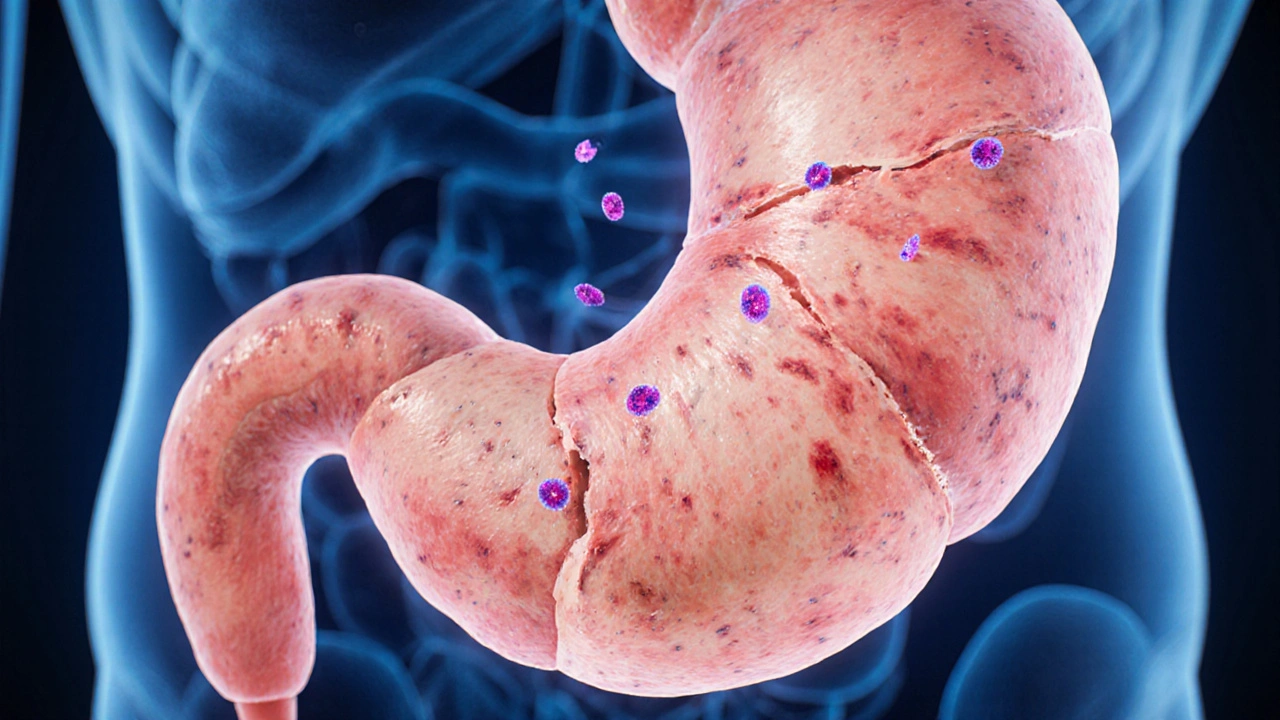
How Atrophic Gastroenteritis Affects Your Heart Health
Learn how atrophic gastroenteritis can affect heart health, the mechanisms linking gut inflammation to cardiovascular risk, and practical steps to protect both organs.
When exploring gut-heart connection, the link between gut function and cardiovascular health, including how microbes, inflammation, and diet shape heart risk, it's easy to overlook the main players. Gut microbiome, the community of trillions of bacteria living in the intestines that regulate metabolism and immune responses acts as a metabolic factory, producing short‑chain fatty acids that keep blood vessels flexible and lower blood pressure. Meanwhile, cardiovascular health, the state of the heart and blood vessels, reflecting how well they transport oxygen and nutrients can be directly swayed by these microbial metabolites. Inflammation, the body's immune reaction that, when chronic, damages arteries and promotes plaque buildup serves as the bridge that translates gut dysbiosis into heart disease. Finally, diet, the foods you eat that feed both your gut bacteria and your heart decides whether you fuel protective pathways or trigger harmful ones. Understanding the gut‑heart connection helps you make smarter choices about what ends up on your plate and in your prescription bottle.
The gut‑heart connection encompasses several concrete mechanisms. First, certain bacterial strains synthesize trimethylamine N‑oxide (TMAO), a compound linked to atherosclerosis; limiting red meat and eggs can curb TMAO production. Second, short‑chain fatty acids like butyrate improve endothelial function, lowering the chance of arterial stiffening. Third, a leaky gut allows bacterial endotoxins to enter circulation, sparking low‑grade inflammation that accelerates plaque formation. Clinical studies show that patients taking probiotic blends rich in Lactobacillus and Bifidobacterium often see modest reductions in LDL cholesterol and blood pressure. In practice, pairing a high‑fiber diet with targeted probiotic supplementation can reshape the microbiome enough to shift heart risk markers. Moreover, anti‑inflammatory herbs such as turmeric or omega‑3 fatty acids act on both gut barrier integrity and vascular inflammation, offering a dual‑benefit approach. When you combine these tactics—dietary fiber, fermented foods, and occasional supplements—you essentially tune the gut‑heart axis toward resilience rather than disease.
Below you’ll find a curated list of articles that dive deeper into each piece of the puzzle. From natural supplements for bladder and urinary health that also ease gut inflammation, to medication guides that discuss side‑effects relevant to heart function, the collection equips you with practical tools. Whether you’re a seasoned patient managing chronic conditions or just curious about how your gut choices echo in your arteries, the posts ahead break down the science, suggest actionable steps, and point out common pitfalls. Keep reading to discover how small tweaks in your gut ecosystem can translate into big gains for your heart health.

Learn how atrophic gastroenteritis can affect heart health, the mechanisms linking gut inflammation to cardiovascular risk, and practical steps to protect both organs.